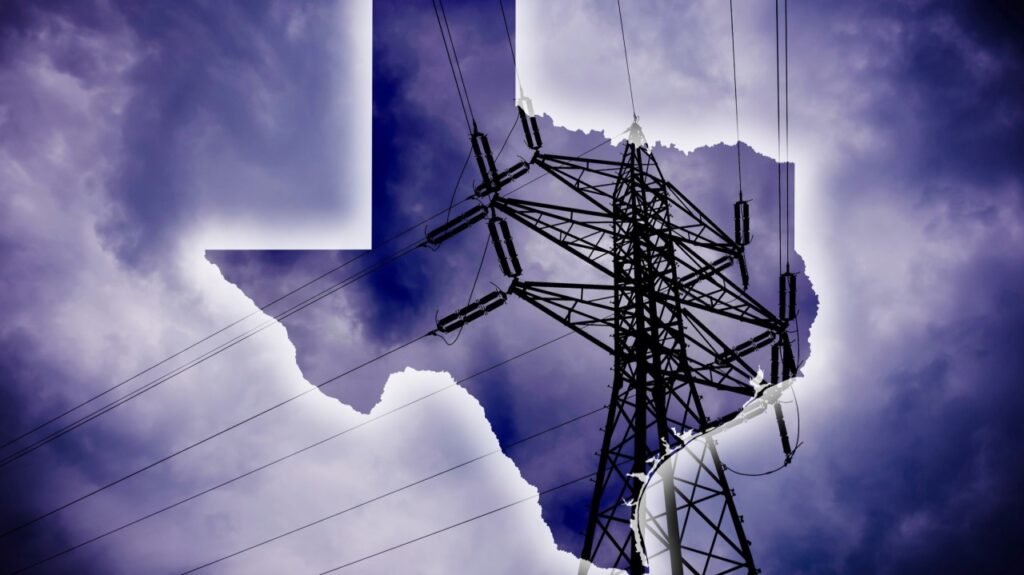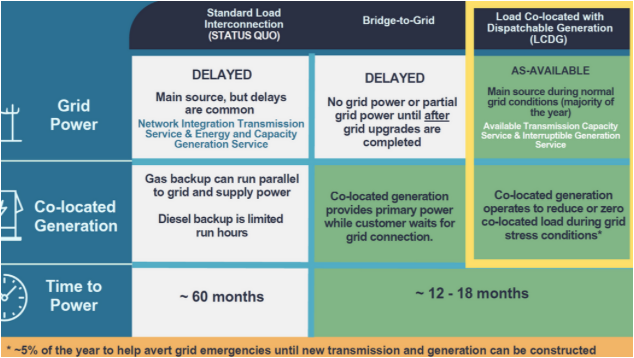How Natural Gas Microgrids Can Deliver on Senate Bill 6

Texas passed Senate Bill 6 with a clear goal: ensure firm, dispatchable power so Texans never again face what we lived through during Winter Storm Uri. The intent is right. But the real question is how to quickly deliver that reliability without waiting years for new wires or generation interconnections.
Refueling Diesel: The Numbers Don’t Add Up

In our last article, we looked at what it takes to power a 500 MW data center for 48 hours during extended outages caused by extreme weather. But the obstacles and delays related to fuel deliveries after a major storm are only half the story. The real challenge comes with getting enough diesel on site fast enough to keep the power on, even when the roads are clear. Let’s dig into the delivery side of the equation, what it would take to pull it off, and whether it’s even realistic at this scale.
A Flexible Grid Is Vital to Utah’s Continued Economic Growth

Energy planning in Utah must navigate the tension between near-term needs and long-term objectives. On one hand, there is an urgent push to add capacity quickly to meet large loads. On the other, long-term investments in dispatchable and low-carbon resources such as geothermal, nuclear, and other emerging technologies are recognized as essential for the decades ahead.
The Diesel Dilemma Series – Weather: Diesel’s Achilles Heel

For a power-intensive facility like a 500 MW data center, diesel backup might come with 48 hours of onsite fuel storage. And at first glance, that sounds like a reliable strategy for protecting against power outages. Two days of fuel leaves plenty of buffer, right? But when you consider how long the bigger storms and the grid’s recovery can last, 48 hours of fuel storage could be a gamble you don’t want to make.
Momentum Builds for Accelerating Grid Interconnection with Flexible Loads

In early June 2025, the Federal Energy Regulatory Commission hosted a technical conference to dive into the challenges of resource adequacy (RA) across regional markets. This timely discussion was undoubtedly prompted by the nation’s rising demand for reliable electricity, challenged further by the rapid growth of data centers at the forefront of the AI race.
The future of reliable energy: How IIoT is powering smarter microgrids

The future of reliable energy: How IIoT is powering smarter microgrids
The Grid Can’t Wait: DOE Report Underscores the Urgency for Flexible Power Solutions

DOE’s Resource Adequacy Report warns that without rapid action, U.S. grid reliability will decline by 2030 due to retirements, rising demand, and weather challenges, emphasizing flexible solutions.
Powering Progress: Aligning Policy With Flexible Generation

Demand for power-intensive infrastructure like data centers and advanced manufacturing is accelerating, challenging the status quo trajectory of the U.S. energy system. Long grid interconnection timelines, rising reliability risks, and macroeconomic uncertainty are making it harder to get power where it’s needed, when it’s needed. In this environment, a flexible, forward-looking approach is no longer optional; it’s essential.
Reliability Culture: Why It Starts with People, Not Procedures

In operations and maintenance, we often rely heavily on checklists, preventive maintenance schedules, and original equipment manufacturer manuals, believing that reliability can be guaranteed by what is documented. But seasoned leaders know the truth: reliability doesn’t come from paper; it comes from people.
From Waste to Watts: Solving the Stranded & Flared Gas Dilemma

Every day across North America, tens of billions of cubic feet of natural gas are either stranded without infrastructure or burned off through flaring during oil and gas operations. At Enchanted Rock, we’re partnering with gas producers to do something different: capture that wasted gas and convert it into clean, reliable power at the point of production.
